[ad_1]
The 12th edition of India Design ID last week was all about looking inward — at the country’s heritage skills. Local participants raised the bar to match global standards with their ideas and creativity. I was pleasantly surprised at the new India Modern that I saw, with craft, design and quality evident in the many showcases.
This was also obvious in the way the fair at New Delhi’s NSIC Grounds demarcated the various sections, be it the Collectible Pavilion — a curation of contemporary design discoveries — and the design section, with its collaborative efforts between craft and design. The idea for the latter was originally born in the 80s when cultural activist Pupul Jayakar spearheaded festivals to highlight the legacy of Indian handmade traditions to the world. The first of these was The Golden Eye, a collab between international designers and Indian artisans curated by designer Rajiv Sethi, at the Cooper Hewitt, Smithsonian Design Museum in New York. It was way ahead of its time.
Watch | India Design ID 2024 with Sharan Apparao
At ID, several exhibits caught the eye, be it the conceptual display at Asian Paints’ ColourNext Trends pavilion or the Gond paintings ornamenting Kohler’s bathtubs. The former explored ideas of earth and water; it was like walking through a Richard Serra sculpture, feeling the rough village walls and experiential fabric installations of blue waters.
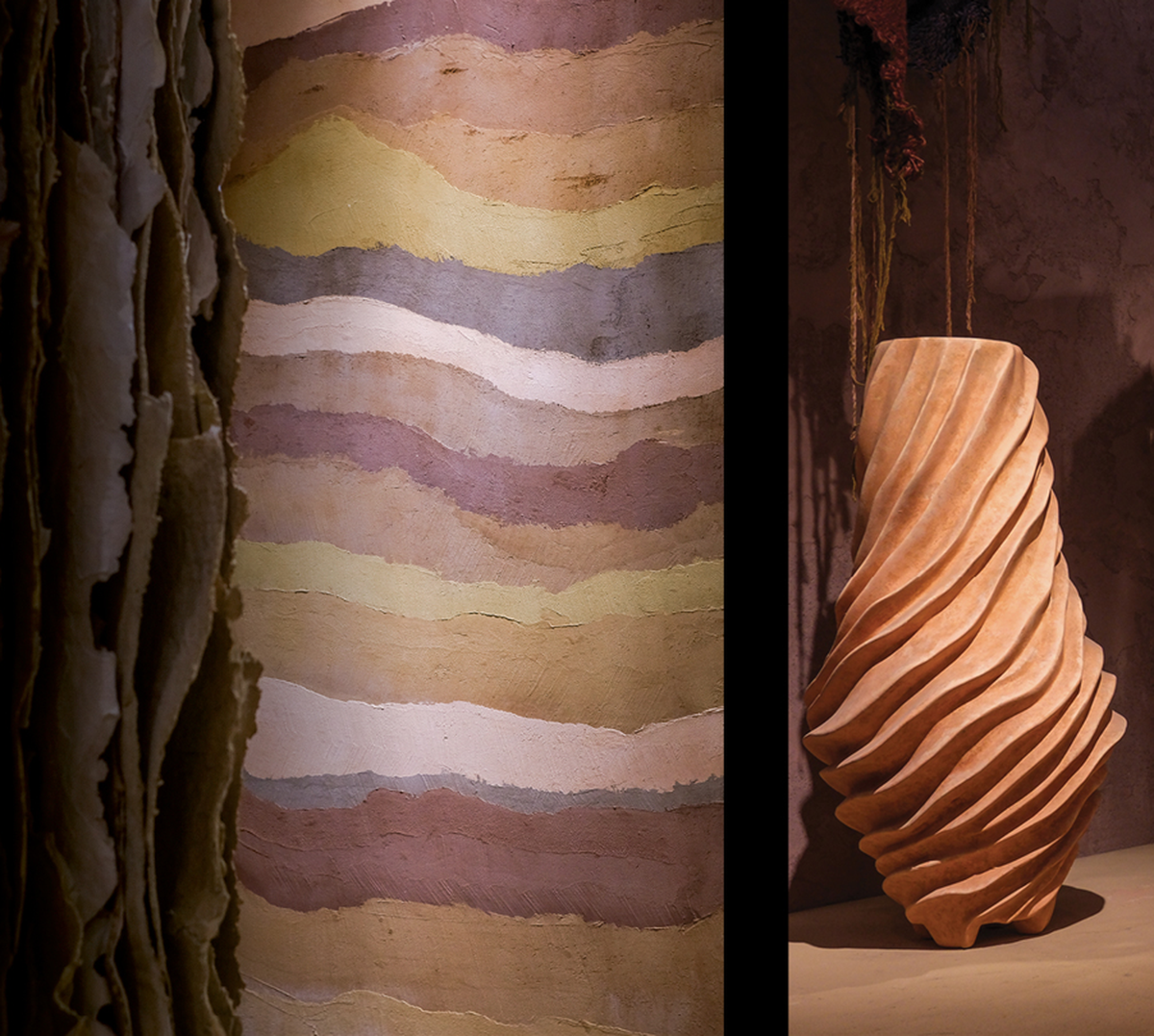
‘Soil’ at Asian Paints’ ColourNext Trends pavilion
Local narrative
ID straddled the line between a B2B and a B2C platform, traversing both easily as one could see from the profile of visitors. Architects and decorators were there in full strength as were young collectors and students.
Architect Tony Joseph of Stapati was spotted interacting with international architects, who have begun to make their way to the fair, as were designer Sandeep Khosla and Ambrish Arora of Studio Lotus. I ran into a gentleman from Thailand who was all praise for what was on view.
The presentations serviced a wide cross section of visitors and this was best seen in the soft furnishings, especially carpets. Historically made fashionable by Mughal emperors in their tented cities, and in the palaces in Himalayan kingdoms, the craft has evolved and refined with the times. Jaipur Rugs, Cocoon and a host of others exhibited weaves in many visual languages — from the classical motifs at Carpet Cellar to the line drawing of Mahabalipuram’s shore temple on a sisal carpet at Neytt.
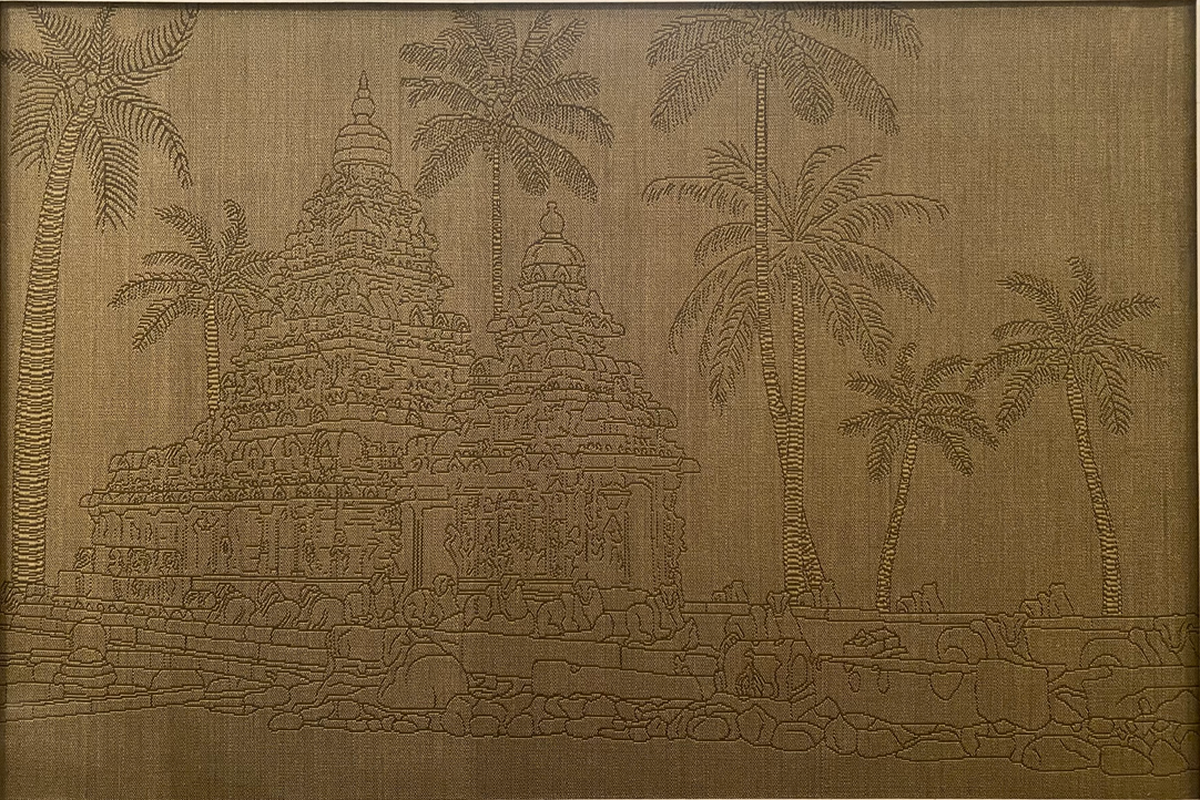
Sacred Threads, with a line drawing of Mahabalipuram’s shore temple on a sisal carpet at Neytt
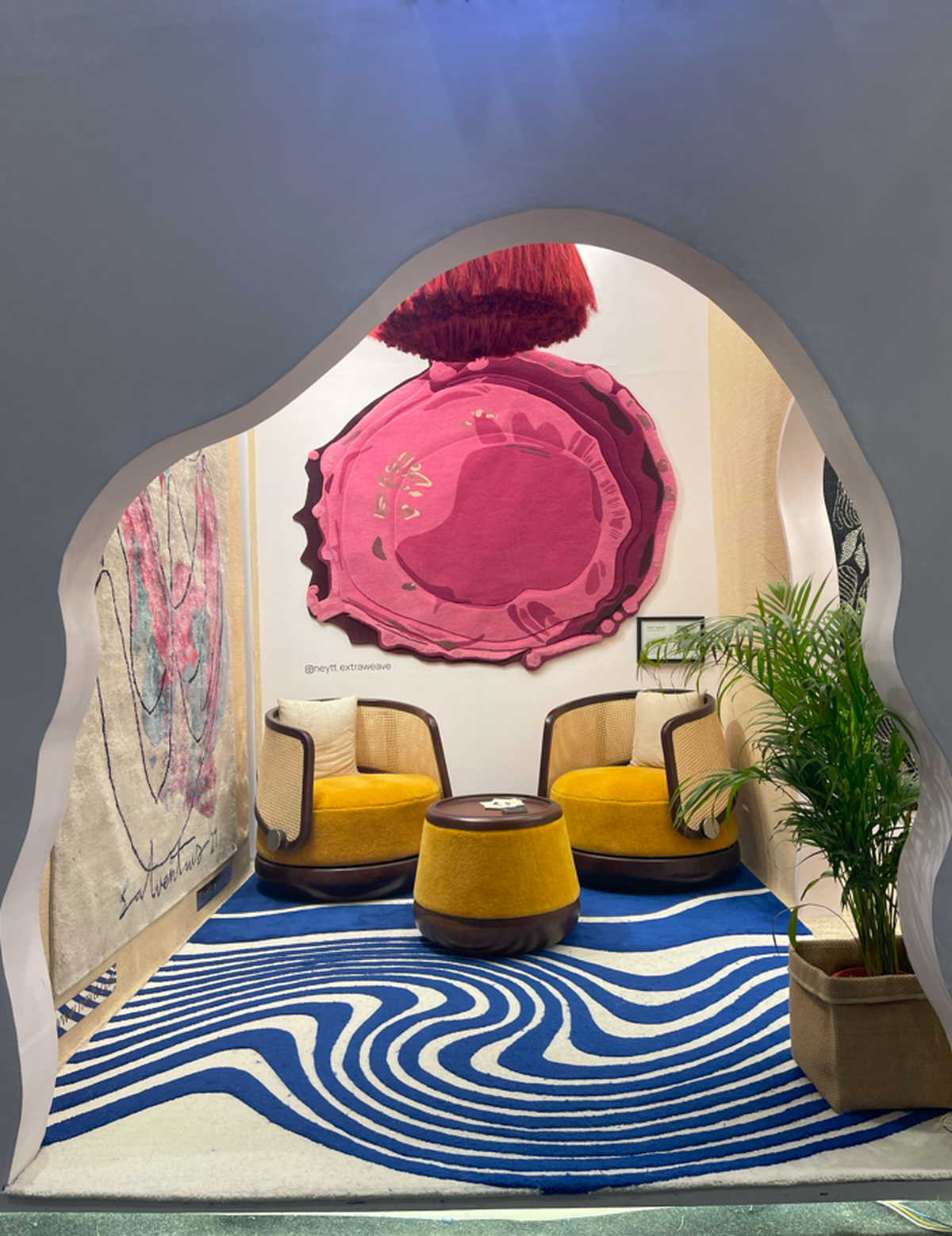
Neytt’s ‘Pink Splash’ by Bijin Davis is inspired by the dynamic nature of paint that splashes on a canvas
Elsewhere, textile czarina Sarita Handa brought an earthy pre-historic flavour to her interiors, while Sabyasachi Mukherjee moved between Kolkata and Paris in his luxurious presentation for Nilaya wallpapers. The designer understands layering, and seamlessly juxtaposed different wallpapers, drapes and soft furnishings.
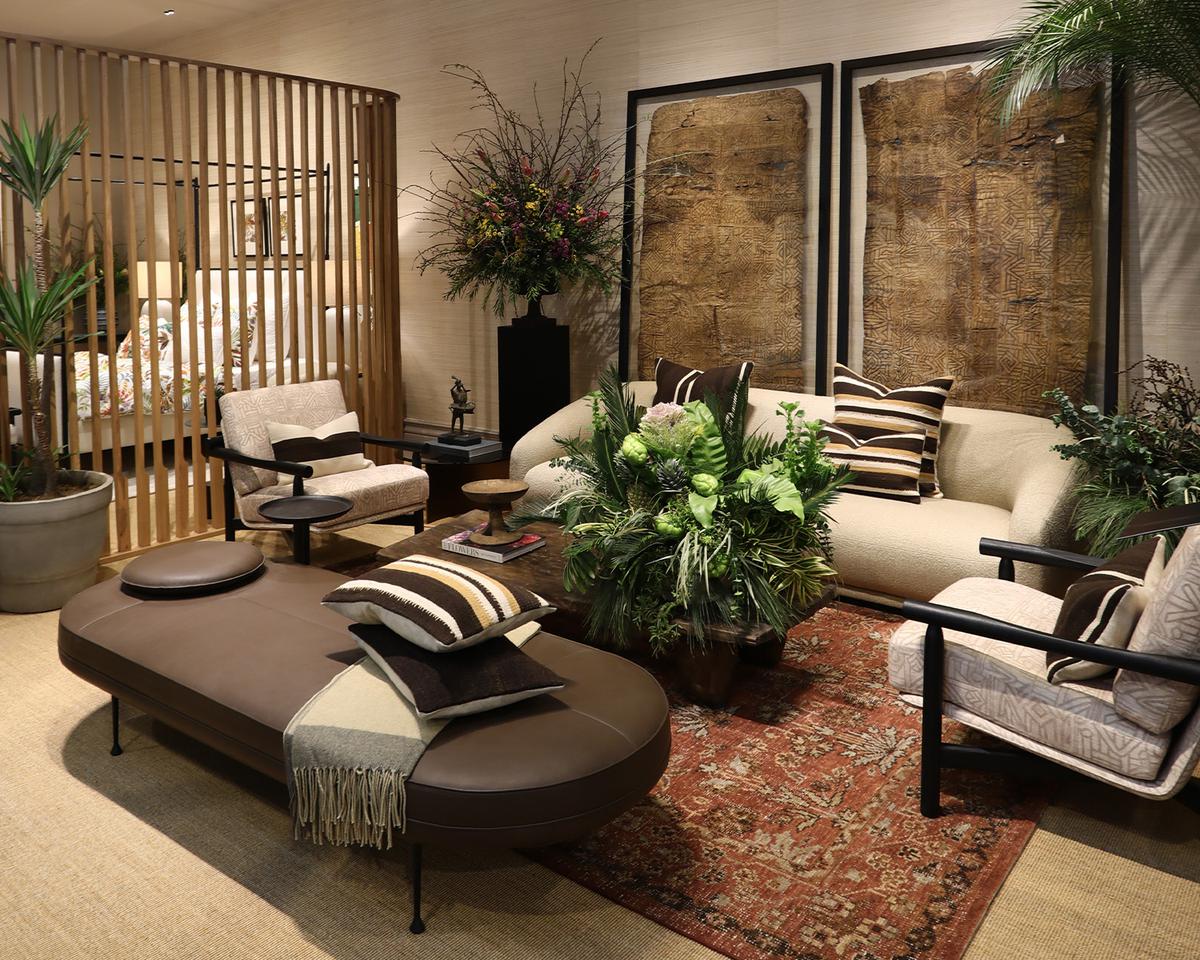
Sarita Handa’s exhibit
Aadyam Handwoven, a social initiative of the Aditya Birla Group, displayed Indian weaves from craft clusters of Benares, Pochampally and Odisha through cushions, rugs, bed covers and throws. The Maati collection translated eastern European needlework and geometric floral patterns in ikat and Bhuj’s extra weft technique. The Charbagh collection drew from Mughal paintings and found expression in silk with Benarasi weaving crafts such as kadwa, tanchoi and gyaata.
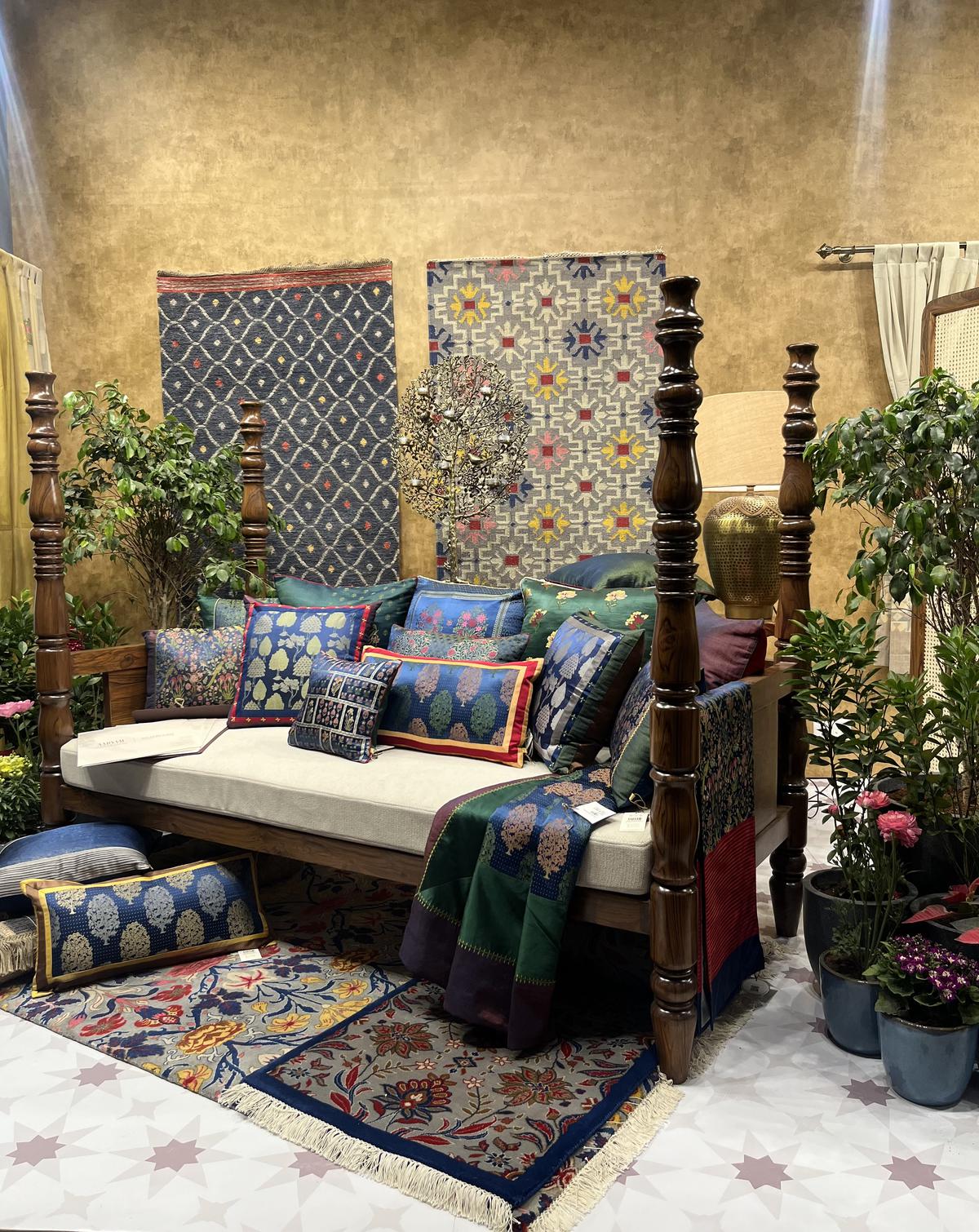
Aadyam Handwoven
Paper up
Alongside the exhibition, a small art section also pushed the India Modern narrative. ID commissioned Ankon Mitra and Apparao Galleries to present a curation exploring the art of paper. With 75 artists and over 100 artworks, On Paper Of Paper explored the many facets and techniques of working with paper as art. It was a teaser for what we hope will become a Paper Triennale.
Merging modern and classic
The furniture segment had showstoppers too, with K2India, Nivasa, Apartment 9, Beyond Design and Within, a brand I wasn’t familiar with till now, bringing their individual identities. For instance, Nivasa used contemporary art and wicker as accents, while Apartment 9 went black and white. Within was a surprise. The pillars outside their booth were adorned with semicircular semi-precious stone inlay spheres. Walking in, I saw endless collaborations between modernity and classicism. From Kashmiri woodwork on the side of armchairs and the carving of Rudyard Kipling’s narrative on a marble fireplace, to bone inlay sideboards and carved foraged wood panels set with marble in a bar counter. There was even a wall of postage stamp reliefs featuring native birds.
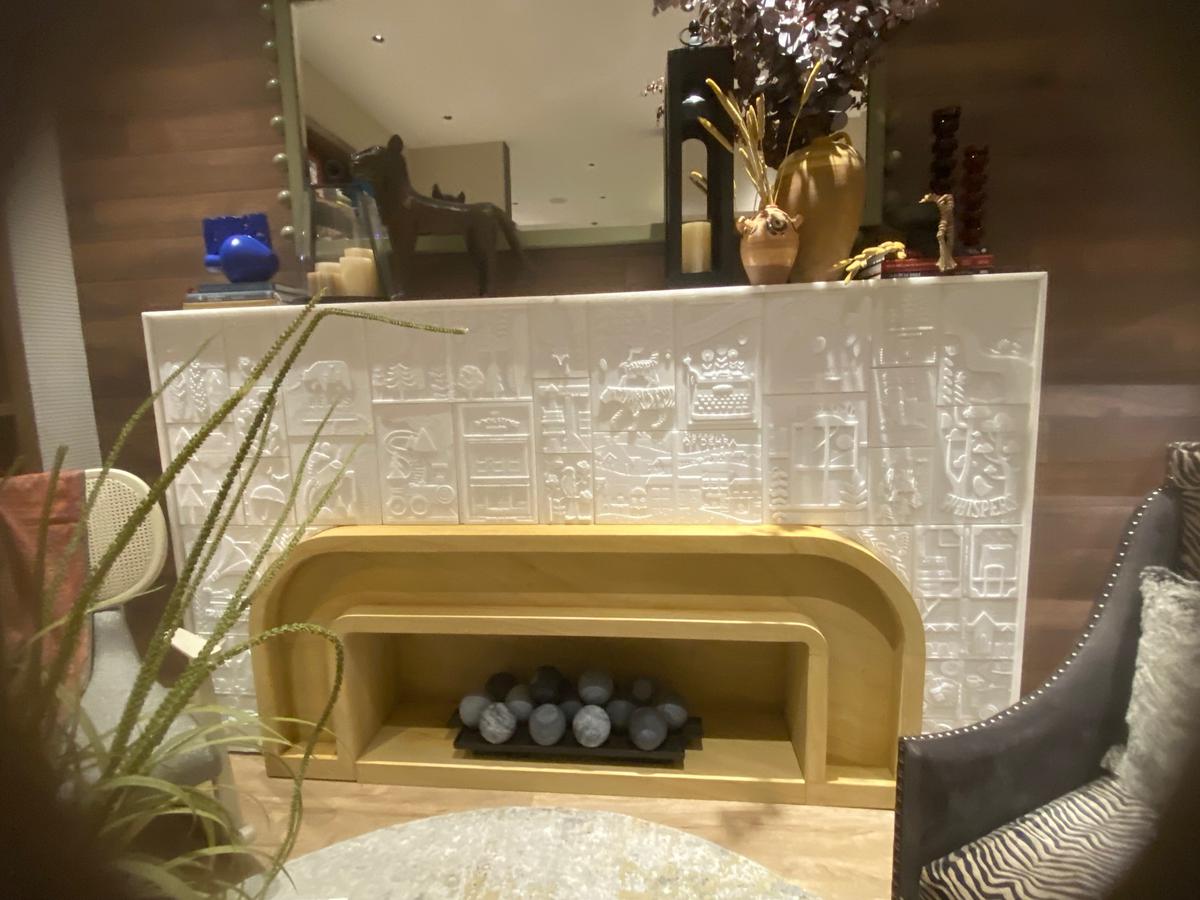
Within’s marble fireplace carved with Rudyard Kipling’s stories
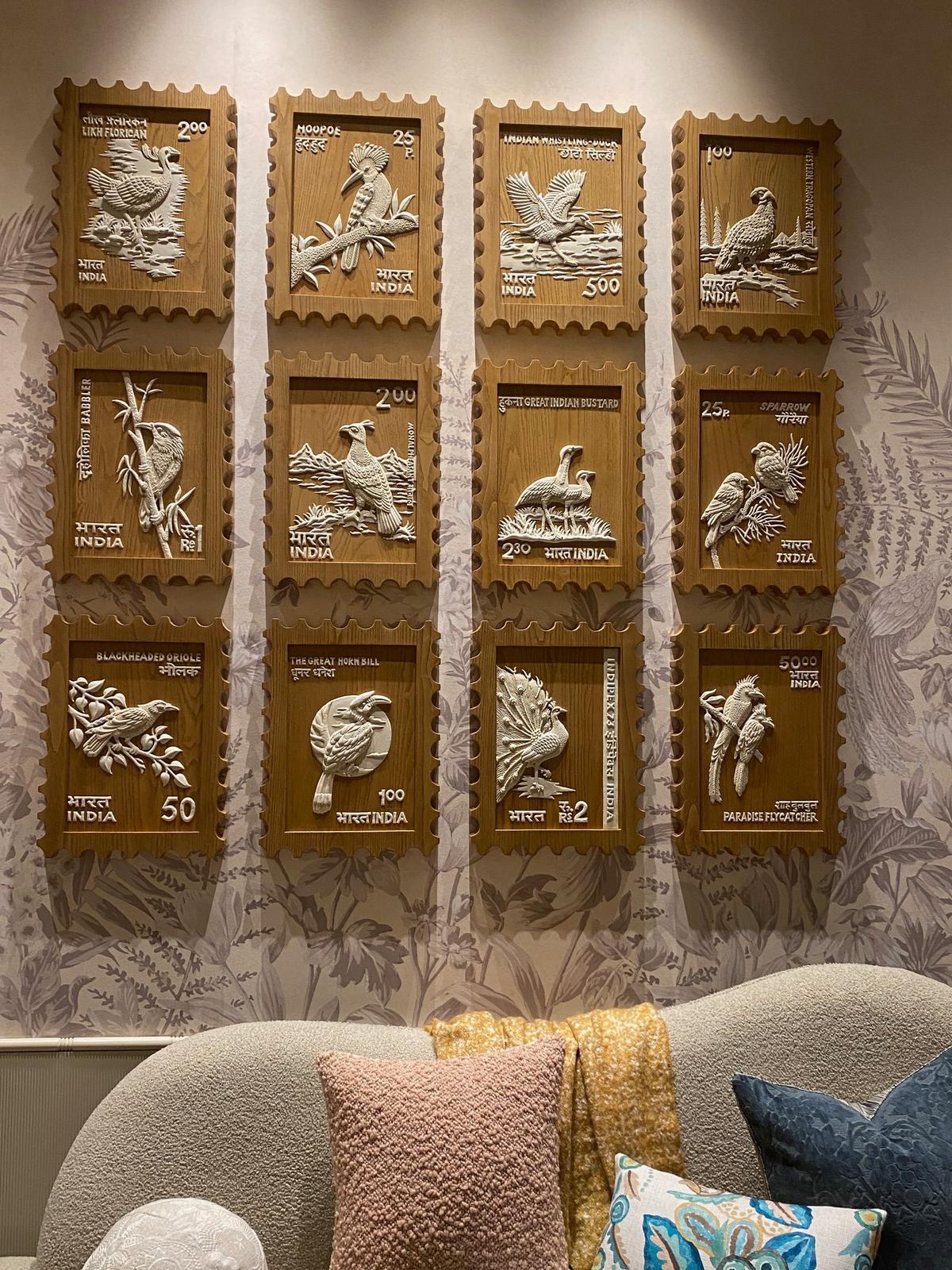
Wall of postage stamp reliefs
Meanwhile, Kohelika Kohli of K2India launched the new collection from her furniture brand, KoKo, at ID. It was charged with the raw energy of the Indian streets — with sculptural drapes and weather-beaten cardboard boxes cast in metal.
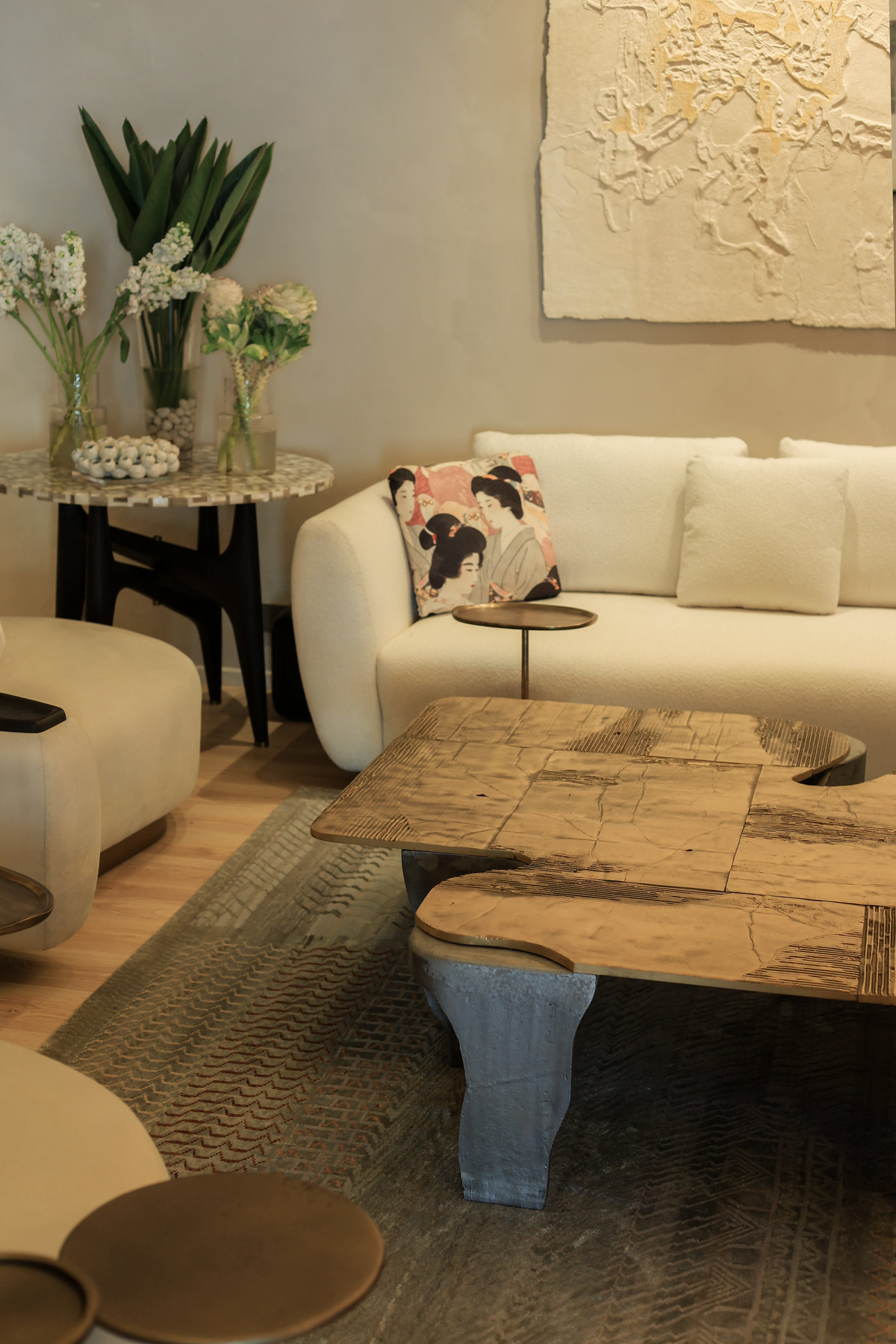
KoKo’s ‘cardboard boxes’ table
Looking outside
Amid veterans such as Vikram Goyal, Ashish Shah, Portside Café and Ayush Kasliwal at the second edition of the Collectible Pavilion, there were also newer entrants, including The Wicker Story, Scarlet Splendor and Pod. Scarlet Splendor had sculpted furniture that referenced rocks, while Pod had contemporary swings, one of which was inspired by the mosaics of Catalan artist Antoni Gaudí. The Wicker Story had stylish black cane screens and furniture in a contemporary style.
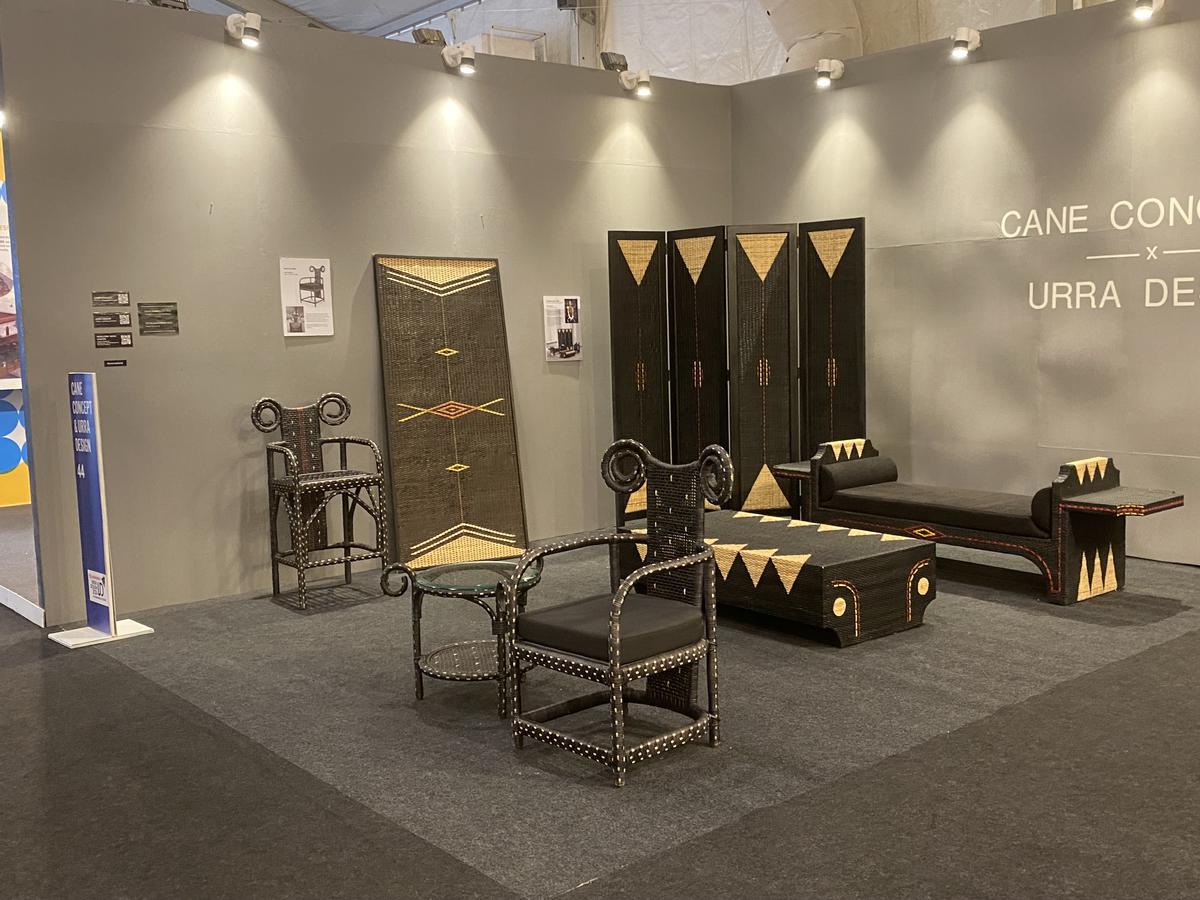
The Wicker Story
International inspirations also found their space at ID. Furniture brands such as Casegoods, Madras Makers and Solid Bench, who are committed to reviving India’s fine woodworking tradition, chose to embrace Scandinavian minimalism, American folk imagery, and mid-century modern, but with artisanal skill levels of the highest quality.
Walking around, I saw for myself the strength of craft, an idiom that was far removed from the ‘ethnic’ design that one knew, and an India Modern that could fit in easily at renowned international fairs such as Design Miami and Maison&Objet.
The writer is the founder of Apparao Galleries.
[ad_2]
Source link





